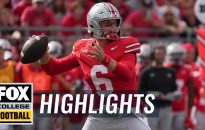Athletes need to “figure out how to position themselves if they want to move from great player to top recipient of sponsorship dollars and to one day being their own brand,” but the “how” is the “most challenging part,” according to Paul Sullivan of the N.Y. TIMES. A group of athletes and sports personalities convened […]

Athletes need to “figure out how to position themselves if they want to move from great player to top recipient of sponsorship dollars and to one day being their own brand,” but the “how” is the “most challenging part,” according to Paul Sullivan of the N.Y. TIMES. A group of athletes and sports personalities convened on Dec. 4 as part of The New York Times DealBook Summit panel, “The Other Game: How Athletes Become Brands.” The consensus was that becoming a brand “is hard and may not be the best career move for many athletes, if it’s even achievable.” Sullivan: “Sports grounds you. Brand-building forces you into the public in a way that may be beyond your comfort zone. It’s almost as if you can’t be too public.” For some athletes, “trading on your celebrity and access could be the better way to go.” Doing so could mean “reaping the benefits of lucrative endorsement deals.” But it could also mean “laying the groundwork for a career after professional sports,” which is what former NFLer Justin Tuck did. Tuck said that he “used his sports fame to learn more about business on his days off.” He now works for Goldman Sachs. Media personality Bomani Jones said that athletes “might be leaning too heavily into creating a brand, when their celebrity would get them where they wanted to go more easily.” ESPN college football analyst and former NFLer Jesse Palmer added that “sometimes even teammates who are outwardly supportive can be privately jealous of your success.” U.S. gymnast Jordan Chiles pointed out the “different level of judgment for female athletes on social media.” Female athletes are “often at their highest-earning capacity in college.” Former USWNT G Hope Solo’s concern now is that “college players, making significant money through N.I.L. deals will focus more on their own brand to the detriment of the team” (N.Y. TIMES, 12/11).














